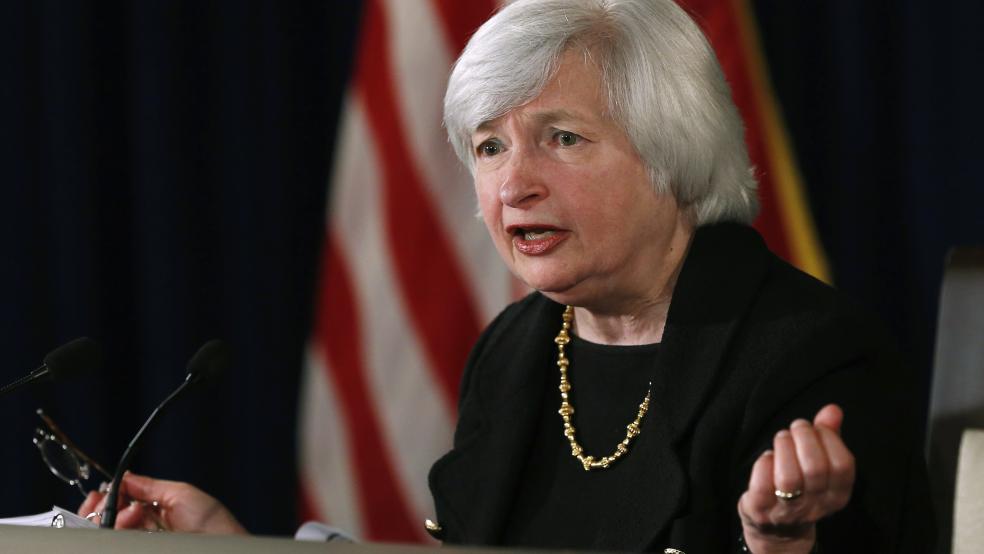The Federal Reserve on Wednesday ended its monthly bond purchase program and dropped a characterization of U.S. labor market slack as "significant" in a show of confidence in the economy's prospects.
In a statement after a two-day meeting, the central bank largely dismissed recent financial market volatility, dimming growth in Europe and a weak inflation outlook as unlikely to undercut progress toward its unemployment and inflation goals.
"On balance, a range of labor market indicators suggests that underutilization of labor resources is gradually diminishing," the Fed said in an important departure from prior policy statements, which had described the slack as "significant."
Related: Something Is Dangerously Wrong at the New York Fed
U.S. stocks added to earlier losses after the statement was released, while the yield on the benchmark 10-year U.S. Treasury note hit a three-week peak. The dollar rose against the euro as investors pulled forward expectations of an eventual Fed rate hike slightly. Rate futures shifted to show better-than-even odds of a rate increase in September 2015.
"I was pleasantly surprised that they removed the reference to there being significant underutilization of labor resources," said Brian Jacobsen, chief portfolio strategist at Wells Fargo Funds Management in Menomonee Falls, Wisconsin. "I think that is a hat tip to some of the progress being made in the labor market."
The Fed statement retained its guidance on rates, saying they would likely remain near zero for a "considerable time" following the end of the bond purchases this month.
Related: The Crime Americans Fear Most Costs $445 Billion a Year
The timing and pace of rate hikes would depend on incoming economic data, the Fed said, new language that apparently earned the support of Philadelphia Fed President Charles Plosser and Dallas Fed President Richard Fisher, who dissented at the previous meeting.
FED SEES SOFT INFLATION AS TEMPORARY
Minneapolis Fed President Narayana Kocherlakota was the only one who broke ranks, arguing for the committee to make a bolder commitment to meet its 2 percent inflation target given a lack of price pressures.
The Fed acknowledged lower energy prices and other forces were holding inflation down, but repeated its view that the likelihood of inflation undershooting its target had diminished since earlier this year.
The decision to shutter the bond-buying program was almost foregone. The monthly purchases had been steadily cut from $85 billion to $15 billion as part of the Fed's gradual turn away from policies launched to fight the 2007-2009 recession and breathe more life into a tepid recovery.
The Fed will continue reinvesting the proceeds of securities that mature each month, meaning its more than $4 trillion balance sheet will remain intact for the time being.




